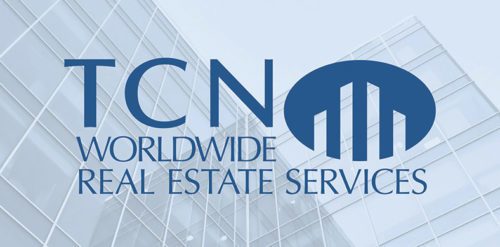
Commercial Real Estate
Commercial real estate is property used exclusively for business purposes or to provide a workspace rather than a living space. Most often, commercial real estate is leased to tenants to conduct business. This category of real estate ranges from smaller workspace to huge independent buildings like shopping centers. Commercial real estate includes retailers of all kinds, office space, hotels, strip malls, restaurants, and convenience stores.
As its name implies, commercial real estate is used in commerce.
- Class A represents the best buildings in terms of aesthetics, age, quality of infrastructure, and location.
- Class B buildings are usually older and not as competitive—price-wise—as Class A buildings. Investors often target these buildings for restoration.
- Class C buildings are the oldest, usually over 20 years of age, located in less attractive areas, and need for maintenance.
KEY TAKEAWAYS
-
Commercial real estate is property used solely for business purposes, versus residential real estate, which is living space.
-
The four classes, of commercial real estate, include office, industrial, multifamily, and retail.
-
Commercial real estate provides income, as well as some capital appreciation, for investors.
-
Investing in commercial real estate requires more sophistication and funds from investors than does residential real estate.
-
Publicly traded real estate investment trusts (REITs) are a feasible way for individuals to invest in commercial real estate.
Managing Commercial Real Estate - Advantages and Disadvantages

A commercial property management encompasses the tasks and responsibilities of operating an income-producing property.
Commercial property management involves being able to prioritize and execute a wide array of tasks. For example, advertising, marketing, and leasing processes are all part of the commercial management tasks; because commercial leases are generally longer than other properties, with built-in renewals and rent escalations, both the marketing and lease negotiation processes are longer and more involved than in other types of property management.
Property management of commercial spaces involves meticulous administrative and financial records maintenance, and keep all applicable maintenance, taxes, mortgages and insurance .
Advantages of Commercial Real Estate
CON: More capital required to directly invest | Greater regulation | Higher renovation costs | Liquid asset
Disadvantages of Commercial Real Estate
For those looking to invest directly, buying a commercial property is a much more costly proposition than a residential property. Also, while real estate, in general, is among the more illiquid of asset classes, transactions for commercial buildings tend to move especially slowly.
Investing in Commercial Real Estate
Direct Investment - Investors can use direct investments where they become landlords through the ownership of the physical property. People best suited for direct investment in commercial real estate are those who either have a considerable amount of knowledge about the industry or who can employ firms who do. Commercial properties are a high-risk, high-reward real estate investment. Such an investor is likely to be a high-net-worth individual since CRE investing requires a considerable amount of capital. The ideal property is in an area with low CRE supply and high demand which will give favorable rental rates. The strength of the area's local economy also affects the value of the CRE purchase.
Indirect Investment - Alternatively, investors may invest in the commercial market indirectly through the ownership of various market securities such as Real Estate Investment Trusts (REITs), exchange-traded funds, or by investing in companies that cater to the commercial real estate market, such as banks and realtors.
Commercial Real Estate Trends to Watch in 2020
Commercial real estate executives understand the imperative to invest in technologies that drive tenant experience, but many are not investing in them quickly.
 Workforce trends, globalization, and urbanization are reshaping tenant preferences, and a range of new digital and AI technologies are helping commercial real estate (CRE) companies meet those needs and prioritize end-user experiences, according to survey results in Deloitte’s 2020 Commercial Real Estate Outlook. The report drew on a survey of 750 CRE executives in 10 countries to assess how, and to what extent, emerging technologies and analytics are helping leaders make more informed location decisions and improve tenant experiences.
Workforce trends, globalization, and urbanization are reshaping tenant preferences, and a range of new digital and AI technologies are helping commercial real estate (CRE) companies meet those needs and prioritize end-user experiences, according to survey results in Deloitte’s 2020 Commercial Real Estate Outlook. The report drew on a survey of 750 CRE executives in 10 countries to assess how, and to what extent, emerging technologies and analytics are helping leaders make more informed location decisions and improve tenant experiences.Overall, CRE executives consider interest rate uncertainty, geographic market, and tenant concentration risks as their top challenges. Respondents, while overall cautiously optimistic, have divergent views about how the CRE industry will perform over 2020: 15% are very optimistic, 61% are somewhat optimistic, 14% are neutral, and 10% are somewhat pessimistic.
“Regionally, respondents from Asia are the most optimistic, followed by those from North America and Europe,” says Jim Berry, vice chairman and partner, Deloitte & Touche LLP, and Deloitte’s U.S. Real Estate leader. “The U.S. respondents expect property fundamentals to be moderately positive for the coming year.”
The Challenge of Digitalization
 The survey found that tenant preferences are changing, due to increasing demand for urban and global sourcing, changing workforce needs such as flexible location and work-spaces, and technology advancements such as AI and Internet of Things (IoT). “The on-demand economy is reshaping tenant expectations about how real estate is consumed, and technology-enabled facilities and personalized experiences are already transforming the CRE industry,” says Berry. Creating superior experiences is not just about engaging the tenant, but also extending services to the end user, or the day-to-day consumer of that space, such as a retail shopper or an employee working in an office space.
The survey found that tenant preferences are changing, due to increasing demand for urban and global sourcing, changing workforce needs such as flexible location and work-spaces, and technology advancements such as AI and Internet of Things (IoT). “The on-demand economy is reshaping tenant expectations about how real estate is consumed, and technology-enabled facilities and personalized experiences are already transforming the CRE industry,” says Berry. Creating superior experiences is not just about engaging the tenant, but also extending services to the end user, or the day-to-day consumer of that space, such as a retail shopper or an employee working in an office space.
While most CRE executives rate tenant experience as a top priority, their digital tenant experience capability is not a core competency. “CRE firms see the imperative to invest in technologies to drive tenant experience, but the survey found most are not planning to invest in them very quickly. While 64% of surveyed executives report increasing their technology investments over the past 18 months, only 56% plan to moderately (42%) or significantly (14%) increase overall technology investments by the end of 2020.
Digital Enhancements to Tenant Experiences and Back Office Operations
 The research highlights several ways CRE organizations can respond to the growing demand for digital experiences, drive operational and decision-making performance, and address challenges that come with the increased use of digital technologies:
The research highlights several ways CRE organizations can respond to the growing demand for digital experiences, drive operational and decision-making performance, and address challenges that come with the increased use of digital technologies:
1. Accelerate Smart Building Adoption. IoT is becoming an increasingly important element in enhancing tenant/end-user experience. Surveyed CRE executives anticipate that IoT-enabled smart buildings will have a growing influence on tenants’ leasing decisions: 61% of respondents believe that smart buildings will be just as or more influential than location on tenants’ leasing decisions. Additionally, 68% believe tenants will pay at least a 6%–10% premium to be in a smart building.
As of June, 70% of surveyed CRE executives say that one-fifth or less of their properties are smart buildings, but 56% say their company aims to significantly increase its smart building investments by the end of 2020.
IoT capabilities can be added in stages to minimize risk and make investments over time. Companies can make progressively greater investments in existing and new buildings to make them IoT-enabled, prioritizing smarter systems for energy, security, and parking; then adding electric car charging points and predictive maintenance; and finally, occupant behavior data analysis and predictive capabilities.
2. Improve Data Capture Capabilities. According to the survey, most CRE companies have not yet fully explored how to capture and use information to enhance decision-making, improve operating performance, and create a differentiated tenant experience. For example, 60% of respondents say their organizations are not capturing their own IoT sensor data.
Nearly two-thirds of respondents consider the building owner or developer as the data owner. The remaining one-third believe it’s either the property manager or tenants who owns it, or don’t know. Among the 40% of respondents whose organizations capture data internally, three-quarters use it to generate insights for decision-making, about half are analyzing data to drive operational efficiency, while 40% use data for more strategic business decisions or future planning activities.
3. Unlock the Value of Data with AI. As CRE companies increase their data collection efforts from technologies such as IoT sensors, mobile apps, and digital reality, the next step is to utilize the data. AI can evaluate diverse sets of traditional and alternative data with speed and accuracy to improve decision-making and strategies.
AI is in the early stages of adoption in the CRE industry―fewer than one-third of respondents say their CRE organizations are using it―but awareness of its value is rising. AI can help organizations evaluate trends and patterns to predict tenant behavior and turnover, enabling better-informed tenant selection decisions. Other AI value-creating opportunities for CRE organization include automating the leasing process and helping to evaluate new revenue opportunities.
4. Strengthen Cybersecurity and Privacy. As the use of advanced digital technologies grows, the magnitude and complexity of cyber threats are expanding, too. Respondents consider vulnerabilities in connected systems of multiple vendors and third-party service providers as the biggest data security risk. For example, smart buildings can collect a host of data on building operations and personal information of tenants, employees, and customers. The information is tracked and captured through multiple sensors, which are connected to the systems of several vendors, and increase the risk exposure. Many CRE organizations outsource data management to third parties, which may raise more concerns about data security.
5. Update Talent Models. For many CRE organizations, their success addressing these areas will also likely hinge on their ability to address talent needs and challenges. Whether it’s managing various data governance activities or utilizing AI, they will need to attract, retain, and develop skilled talent with specific capabilities suited to each area. For example, 45% of all surveyed organizations face challenges in managing cybersecurity due to the absence of skilled cybersecurity professionals, while 52% of respondents globally and 57% from the U.S. consider lack of adequate skills the top challenge in adopting AI technology.
CRE organizations can tackle cyber security talent shortages by adding more automation across cybersecurity processes to help manage with fewer resources, and by outsourcing some cyber capabilities. For AI, CRE companies can reskill existing talent, hire new talent with specialized AI skills, or collaborate with proptechs, which specialize in developing and implementing AI-based solutions, to alleviate talent issues in the short term.
Adapting to New Levels of Service and Security
The ways CRE tenants and end users engage with their physical surroundings is shifting rapidly. As a result, expectations are also changing. “As real estate tenants’ and end users’ expectations and the ways they engage with their physical surroundings rapidly evolves, CRE companies have to shift their mindset to providing real estate-as-a-service,” says Berry. “That means using data to understand tenant behaviors and create unique experiences.”


















Leave a Reply